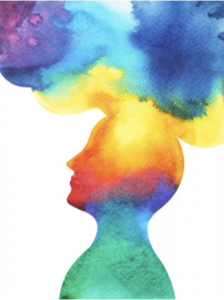What is Mental Health?
Mental Health is a hot topic, but can anyone clearly define it? Since the disruption, fear and isolation of Covid, we have been witnessing an onslaught of mental health disorders. Suicide rates, depression, anxiety disorders, addictions, trauma, and more have seen a tremendous amounts of attention. 
This is, in part, a good thing. It has spawned many important advancements in the availability of mental healthcare, while bringing down the barriers of embarrassment or shame in seeking care. On the other hand, the supplement industry has been profiteering on the mental health needs of the public, by advancing their versions of what may be helpful for mental functioning. Trauma themed books, podcasts, and the like are sitting at or near the top of popularity charts.
Yet, what I find interesting (but not surprising) is the actual lack of definition for what mental and emotional health consist of. What characterizes someone who is living in a state of good mental health?
I have identified 10 consistent characteristics that I believe constitute, in compilation, excellent mental and emotional health. By this, I do not mean the absence of mental illness. That is another topic altogether. I am focusing on what constitutes the optimized mind. What is, as best as we can tell, mental wellness?
These categories are not meant to be rigid. They often overlap. Additional contributions that others may have would be most welcomed, and, I believe that this might serve not as an absolute, but as a beginning of thinking about this under represented concept.
Here is my list and partial explanation.
- Affect Tolerance: Are you able to modulate strong emotional reactions and not become physically or physiologically dysregulated? Can you then be in a position to allow yourself to think of the best possible responses in a situation and not simply react to them out of a sense of urgency?
- Mentalization: This is a term that I have borrowed from Dr. Peter Fonagy PhD, of Oxford University and his studies of infant and toddler development of mind. This refers to the ability to develop self awareness of body signals, emotions, and external situations in totality, while concomitantly understanding the mind of someone else. Then, being able to relate and to respond to that person in mutually beneficial ways.
- Attachment and Intimacy: Attachment begins in early childhood and is becoming a very well recognized term. It is the amount of trust and safety that we are able to feel in our relationships and to be able to lean into them as we are able. It’s also means being vulnerable to letting other people in to some of our deepest thoughts, emotions, and experiences. However, this needs to be carefully balanced with a capacity to determine when and with whom it is safe to do.
- Sense of Self: I am subsuming confidence, self-esteem, and the like under this. It is the ability to assess ourselves reliably and realistically. Knowing who we are, what we are capable of, and knowing we have the potentiality to do more without being perfectionistic. We are not crushed by disappointments nor are we over inflated by praise.
- Healthy Relationship to our Bodies and Health: With our bodies, we respect them so that we don’t starve them, cut them, burn them, or bring about preventable illness. We are able to let go of adherence to beliefs that are counterproductive to our health. We are able to read our body and trust the signals from our body to inform us, to guide us and to signal safety or danger, challenge or recovery.
- Energy: We have an optimistic energy to approach things in our daily lives, including tasks that are hard. This presupposes the ability to manage frustration without distraction, quitting, or looking for excuses.
- Self-Care: The capacity to know when it is time to slow down, to rest, and to settle.
- Fluidity of Thinking: Are we interested in learning for the sake of learning something new? To be curious about life so that we can grow? Or, are we stuck in rigidity? Are we able to be excited when we are proven wrong?
- Love: Are we able to love? To love and respect our world, nature, and to take care of it? Are we able to empathize and sacrifice for others? Are we able to be of service to others who are close to us and to those in need? Are we able to demonstrate real compassion that does not seek to be rewarded?
- Motivation and Purpose: Do we engage in meaningful work, hobbies and activities that align with our values and identities? This is how we make our lives valuable to ourselves and others. Our creative expression can manifest itself in small ways or big accomplishments, as long as it feels rewarding to you.
I look forward to your comments and additions to this list. Mental health is not the absence of mental disorders. It is not limited by genes internally, or by circumstances externally. It is constantly striving to flourish in the present moment and beyond.